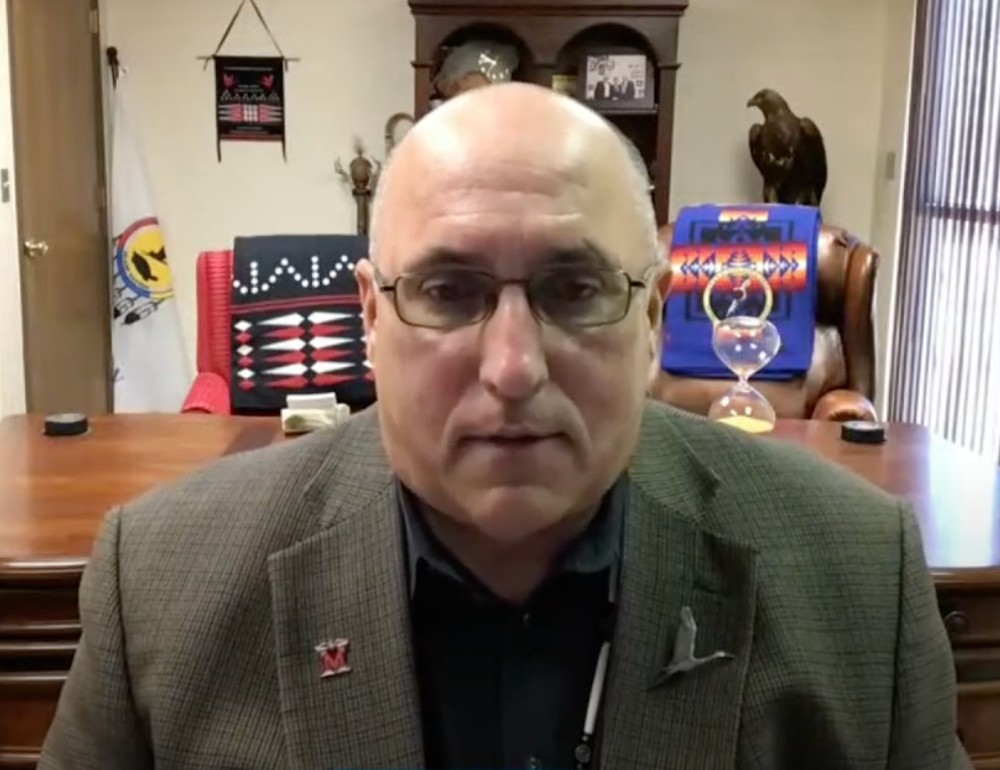
- Details
- By Tripp J Crouse - KNBA
Federal legislation in the U.S. House would extinguish a Tribe’s claim to land in Illinois.
The Miami Tribe of Oklahoma would remove any cloud on title to land – about 2 (point) 6 acres of farmland in eastern Illinois. In exchange, the Miami Tribe seeks a one-year window to bring its case to federal court -- to seek compensation for the lands’ transfer and sale without Tribal consultation or payment.
Douglas Lankford is chief of the Miami Tribe of Oklahoma. He spoke before the U.S. House Natural Resources Subcommittee on Indigenous People during a hearing on a number of related Tribal issues.
This story was originally published by KNBA. Republished by Native News Online with permission.
“All this bill grants to us is our day in court and we still have to prove our case,” Lankford said. “But the landowners in Illinois once it’s signed they receive immediate relief.”
Minnesota Democratic Representative Betty McCollum introduced House Resolution 6063 – for equitable settlement of certain Indian land disputes regarding land in Illinois.
The land was part of an 1805 treaty to the ancestral homelands of the Tribe – an area south of the Great Lakes and what are now the states of Illinois, Indiana and Ohio.
In 1805, the Tribe and historical constituents – The Eel River Band and Wea – signed the Treaty of Grouseland – which reserved lands in the Wabash River watershed -- a waterway which now serves as a partial border between Illinois and Indiana.
Over time the United States transferred or sold that land to non-Indians without negotiation or payment to the Miami Tribe.
The Eel River Miami became a part of the Miami Tribe of Oklahoma and the Wea ceded their interest in the reserved land in 1818.
Because the Tribes says the conveyance happened through treaty-recognized title – it says it’s entitled to compensation for the loss.
In exchange for the Tribe extinguishing the cloud on title it seeks a one-year window for the Tribe to bring its case before the United States Court of Federal Claims, but extinguishing the cloud of title would happen regardless of the Tribe’s court case.
“That’s really the biggest hurdle is once the law becomes law, is to take this and go win our case which we very much intend to do.”
In 2019, The Miami Tribe of Oklahoma worked with the Illinois Farm Bureau to draft legislation that would be fair to Illinois farmers.
More Stories Like This
Native News Weekly (August 25, 2024): D.C. BriefsUS Presidents in Their Own Words Concerning American Indians
American Indigenous Tourism Association Announces New Board Members
American Indigenous Tourism Association Announces New Board Members
Deb Haaland Talks Youth, Jobs and Opportunity in Governor Bid
Help us defend tribal sovereignty.
At Native News Online, our mission is rooted in telling the stories that strengthen sovereignty and uplift Indigenous voices — not just at year’s end, but every single day.
Because of your generosity last year, we were able to keep our reporters on the ground in tribal communities, at national gatherings and in the halls of Congress — covering the issues that matter most to Indian Country: sovereignty, culture, education, health and economic opportunity.
That support sustained us through a tough year in 2025. Now, as we look to the year ahead, we need your help right now to ensure warrior journalism remains strong — reporting that defends tribal sovereignty, amplifies Native truth, and holds power accountable.
 The stakes couldn't be higher. Your support keeps Native voices heard, Native stories told and Native sovereignty defended.
The stakes couldn't be higher. Your support keeps Native voices heard, Native stories told and Native sovereignty defended.
Stand with Warrior Journalism today.
Levi Rickert (Potawatomi), Editor & Publisher

